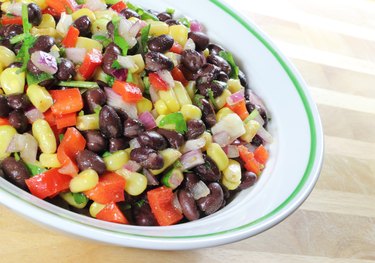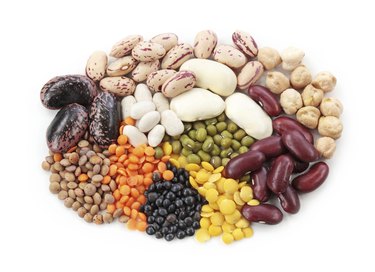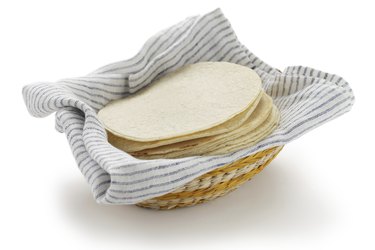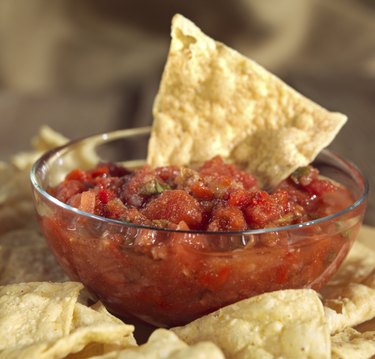
Corn and beans, common ingredients in Mexican cuisine, are relatively inexpensive and can be bought in large quantities. Most of Mexico's typical food does not include burritos, tacos and nachos with lots of toppings and ingredients like most Americans are used to. Authentic Mexican cuisine includes lots of chilies, stews and simple tacos that are healthier.
History
Video of the Day

Historically, Mexican food has mainly been a mix of everything that could easily be found in the local area. When the Spanish conquers came in the early 1500s, they brought foods such as pork, rice, chicken, wine, garlic and onions. Archaeologists have found no major evidence that protein from animals played a role in the Mexican diet during the Aztec civilization; their source of protein came from beans.
Video of the Day
Features

Tortilla-based Mexican foods such as tacos and burritos are usually far simpler than their American counterparts, and portion sizes are traditionally a lot smaller as well. Many dishes contain some form of corn as an entrée or a side dish. Dishes also feature traditional Mexican cheeses like chihuahua, asadero and cotija.
Types

Typical Mexican meals vary depending on the region. One example of a popular meal is chicken fried rice. Tacos are typically served with fish as the main protein and are usually topped or accompanied with chili. Corn and rice stews are also very common. Foods are sometimes served on a banana leaf to increase the presentation value.
Nutrition

The proper combination of beans, rice and tortillas provides a good amount of amino acids to make protein in the body. Beans provide a good amount of fiber, B vitamins and magnesium. Chilies and salsas can also be good sources of vitamin C and antioxidants.